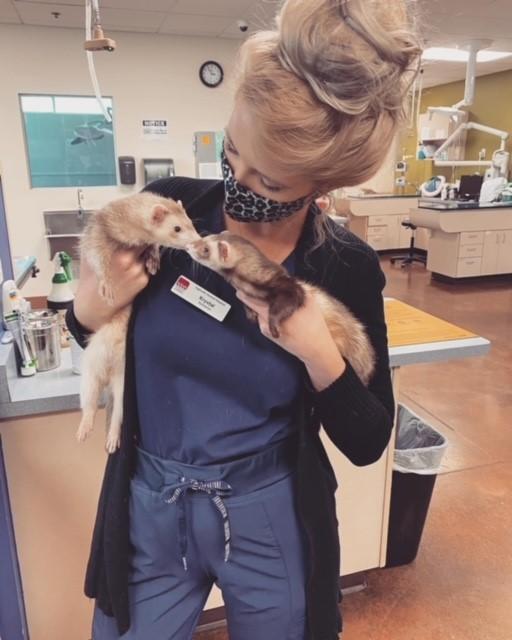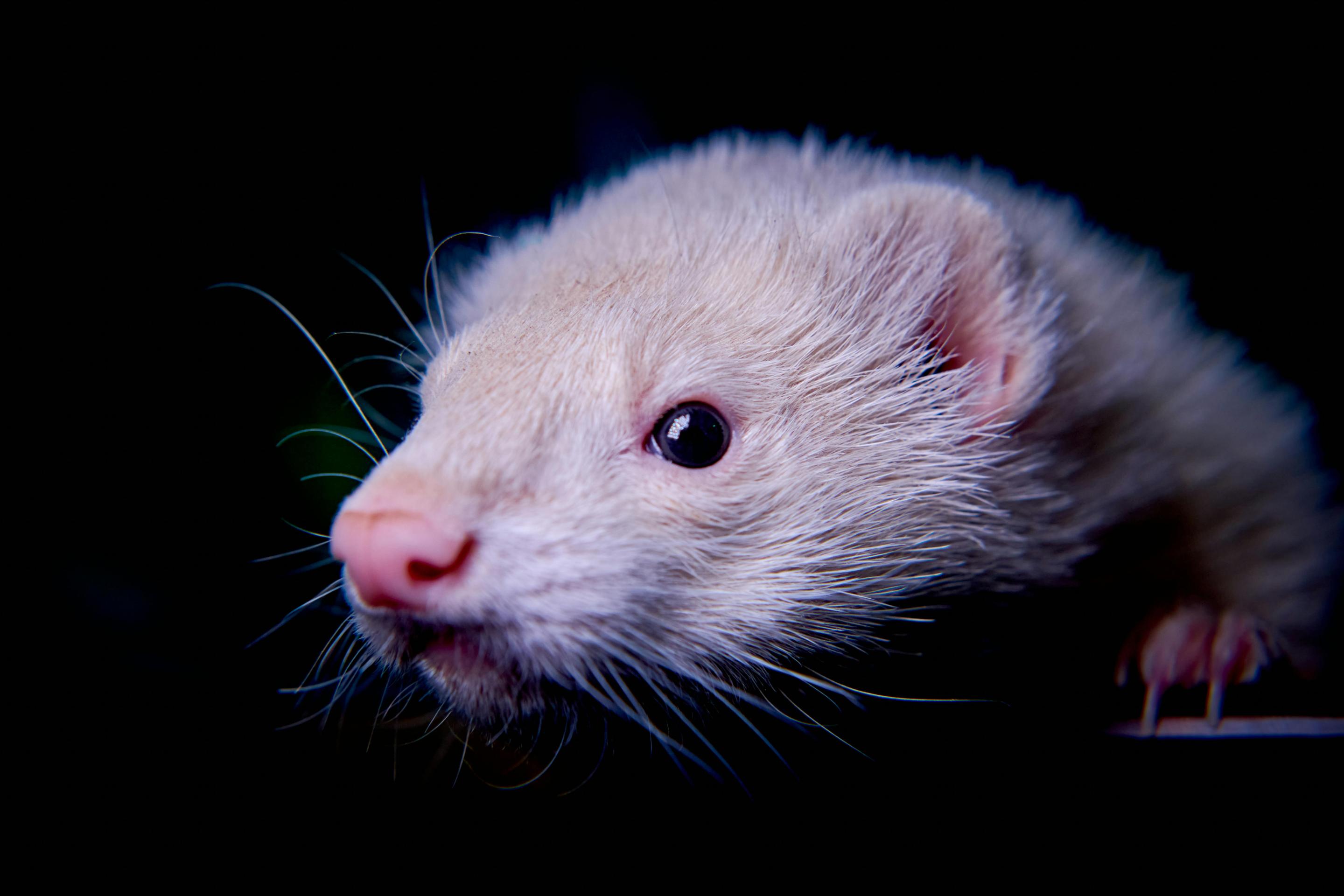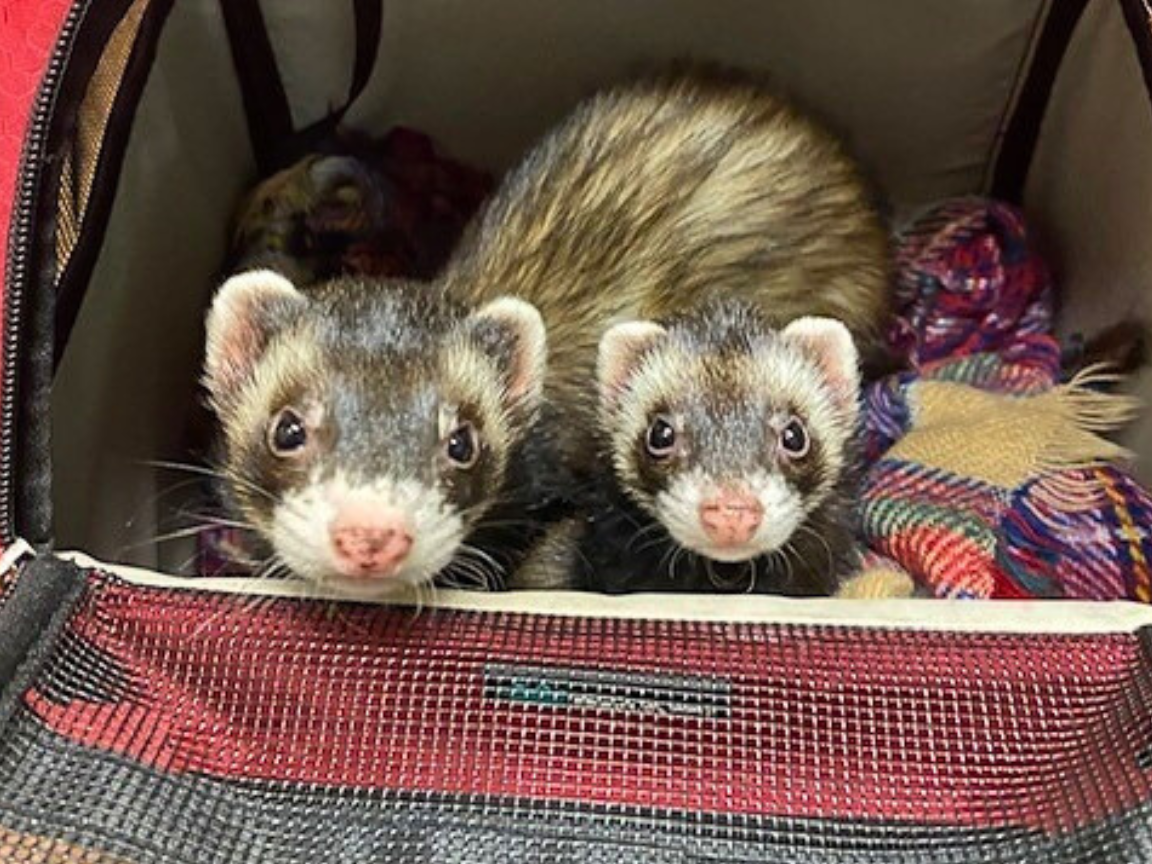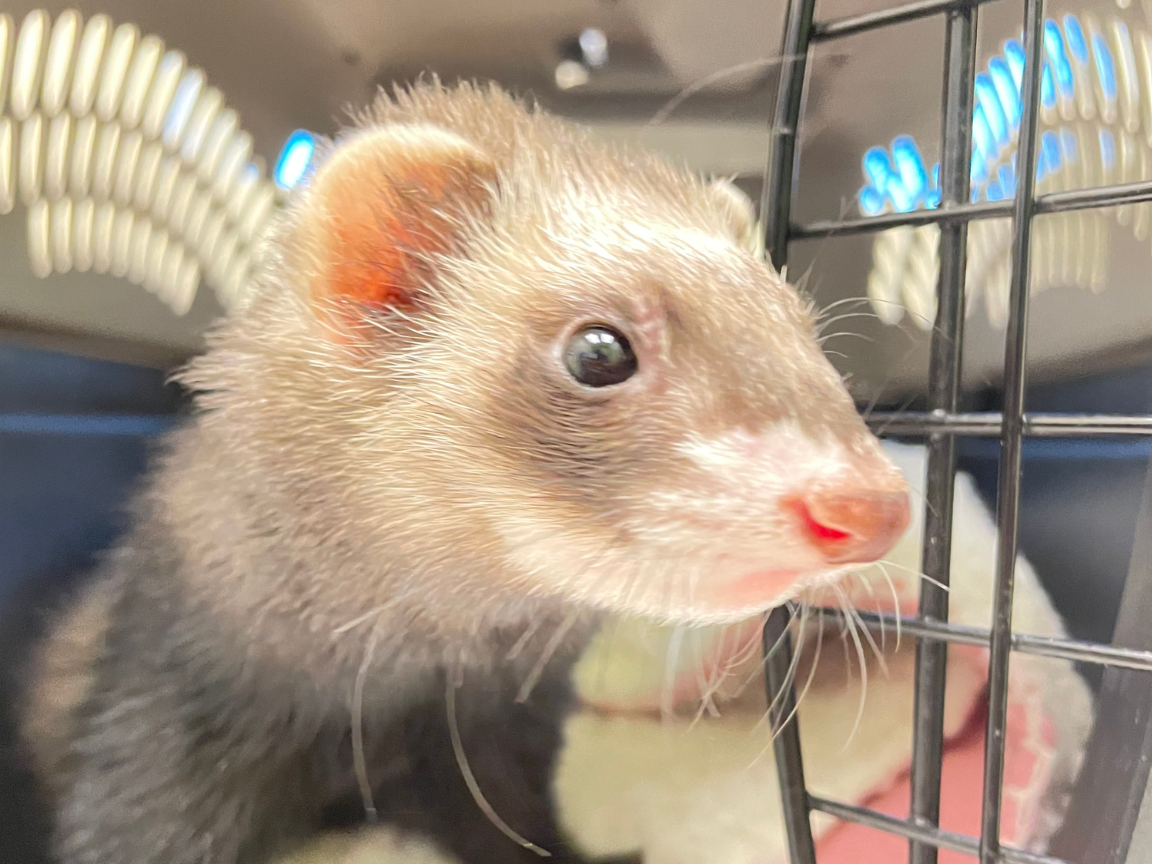
Ferrets at Ingleside Animal Hospital
Ferrets are members of the weasel family, and they have been domesticated for over 2000 years. They are highly intelligent and social pets. They are a big responsibility and often require just as much care as a cat or dog, if not more! We recommend keeping ferrets in pairs, as they don't cope well to living alone.
Ferrets live an average lifespan of 5-7 years. They are very curious and social animals so if you are going to adopt a ferret, please consider adopting more than one so they will have a companion. Ferrets are very fragile animals and can be easily injured if handled inappropriately or dropped.

- Ferrets LOVE to nap
Like cats, they love to nap and usually sleep up to 20 hours a day. When they are awake, however, they are very active and playful pets! They love to bounce around and invite you to play with them. If you start bouncing around with them, this will often make them happy. They love crawling through just about anything, including cardboard boxes, PVC piping, clothes dryer hoses, paper bags, and even pant legs or long shirt sleeves. They tend to play rough and will often playfully nip in the beginning, so it is important to teach them not to.
-
They require a huge amount of grooming care
Even though ferrets are naturally clean animals, they are very well known for their musky smell. No matter how many times you bathe a ferret, the odor will never completely go away. This scent is much worse in unneutered ferrets, but luckily almost all of the domestic ferrets in North America are neutered at the time of weaning, so we don’t really have to worry about this.
They also have a pair of anal glands similar to cats and dogs, with very strong-smelling secretions. They rarely express these anal glands unless very scared and the scent often goes away after a few minutes. Again, most ferrets you find around here have already had these glands surgically removed, so you only have to deal with a mild musky odor from the oils in the skin.
Bathing should be kept to a minimum. Bathing a ferret will strip its skin and coat of all of the natural oils, which will cause the body to overcompensate and keep producing more and more. Basically, over-bathing a ferret can cause its smell to get even worse. They usually do a pretty good job of cleaning themselves much like a cat. If you give them a bowl of water, they will use it to clean their face.
-
They require a balanced diet
The best diet for a ferret would be either a specialized ferret diet made specifically for their nutritional requirements or a high-quality kitten food you would find at a vet clinic. If you do buy a special ferret diet, make sure to check the ingredient list that it is appropriate and isn’t fish based. They need the best quality nutrients because they have a very short GI tract and simple gut bacteria, or “flora”, so there are only 3-4 hours for their body to digest their food and absorb its nutrients.
If you want to give your ferret a treat, the best option would be a small piece of high-quality meat, such as chicken or turkey. Avoid the ferret-specific treats on the market, because most of them have no meat in them at all, but rather mostly grains and sweeteners. Feeding this to a ferret can be quite dangerous to their health. Even though they may like the taste of sweet foods like fruits, it is best not to feed them those as treats either. Remember, if you change food or flavors abruptly with an adult ferret, they could potentially get sick.
Fresh water should be available to your ferret at all times and changed regularly.
- Ferrets need exercise!
Ferrets need exercise and mental enrichment and therefore should not be caged 24 hours a day. They should always be supervised when outside of their cage. The areas you allow your ferret to explore should be very strictly “ferret-proofed”. For example, you should make sure they cannot reach any electrical wires, dangerous substances or breakable items. Cover any gaps they can fit through, such as under doors, windows and dryer vents. They have been known to escape the house this way.
-
They require vet visits annually
Some of the most common conditions we see in ferrets include physical injury, adrenal disease, insulinoma (or pancreatic cancer), skin tumors, human influenza, foreign bodies (or blockages) in the stomach or intestines, epizootic catarrhal enteritis (or “green slime disease”), heart disease, Aleutian disease, and other cancers.
If you are concerned your ferret may have a medical condition or would like to learn more about caring for your ferret, call and make an appointment with one of our veterinarians today!
Schedule an Appointment
- Call us at (602) 840-3446
- Book an appointment online www.ingleside.com
For more than five decades, families from greater Phoenix, Arcadia, Paradise Valley, Tempe, and Scottsdale in Arizona have come to rely on our trustworthy and compassionate care. As an AAHA-accredited, Fear Free, and Cat Friendly facility, your pet’s well-being and comfort are our highest priorities.


